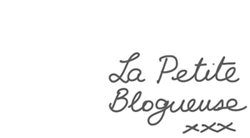L'argot et le langage familier
Here are some ways to learn French colloquialisms. Some obvious, some not so obvious.
1. Speak to a native French speaker as often as you can (ie listen to them carefully, really pay attention to seemingly simple but unfamiliar words and ask them to explain them to you)
2. Failing that, speak to a native French speaker online via Skype
3. Failing that (no microphone, crap computer, slow connection for example), "speak" to them by chatting (typing) online
4. Watch a whole heap of French movies, or even English movies with French subtitles
5. Find clips on YouTube (if you click my tags/etiquettes 'youtube' you will find some, I've done the work for you) and watch them
6. Read the comments on YouTube (also on blogs and forums)
7. Have a native French speaker write emails to you in French. You'll see learn a whole heap of new expressions that you never learnt from a textbook or in class!
8. Be-friend a native French speaker on Facebook (even better if you know them from real life ;) ) and read what is written on their wall. I've learnt a whole heap of various argot, and a lot of contractions.
9. Have native French people send you a texto (text message/SMS).
Real life examples from me:
Probably one of the first slang words I learnt was by chatting on Skype: boulot (travail/métier/etc : job/work/profession). On that same theme, I later learn bosser (travailler : work) reading something online.
I also learnt c'est chiant/merdique (that's annoying/shitty), ça craint (that sux (literally: that scares (me)) from this friend.
One of my French friends has texted me "Coucou" (Hi there) and "Tiens-moi au courant" (Keep me up to date). The latter seems to be very very common phrase. That, or "Je te tiens au courant" (I will keep you up to date). I then later texted another French friend "Dis-moi au courant" (forgetting what the phrase should have been) and he laughed.
I've seen appart (apartment) mentioned so many times. I 'introduced' my appartment as "Voilà ! Mon appart" and my French friend said I sounded like a real Française hehe
From movies: I've learnt that "Ne t'inquiète pas" > "T'inquiète pas" > "T'inquiète" (Don't worry)
From a friend, no two friends now: des fois (sometimes). I had never learnt or seen this before prior to hearing it and asking about it. I had only ever seen/used parfois and quelquefois before talking to these new friends.
I could go on and on, this is not meant to be a vocabulary lesson ;) but the funniest thing is, most people don't remember things they've said to me (but I do) and they definitely don't realise I've retained what they told me several weeks ago so when I come out with these phrases they seem really surprised and impressed.
Also, when I learn something from friend 1 and use it when talking to friend 2 they seem to think I just picked it up from thin air and they seem really really impressed (I don't think they realise I have several French friends - oooh how sneaky of me!). I don't know what it is about that! I obviously can't impress anyone with my so-so pronunciation or accent, but every French person just seems super impressed when I use colloquialisms, slang, abbreviations, etc! They actually think it's funny too and I was always being asked/told by one of my French friends, "Where did you learnt that?", "How come you know that word?", "Oh you know that one?" etc.
Obviously I don't think you can impress people with this once you are living in France (or maybe you can? I don't know yet) I guess it's impressive because 1) I'm mostly a self-taught learner and 2) everybody knows you never learn these words or phrases in a language school!
You can, however, learn it from a book but I think this method is less effective than the ones I mentioned above.
Picture from Argot Français






















0 comments:
Enregistrer un commentaire